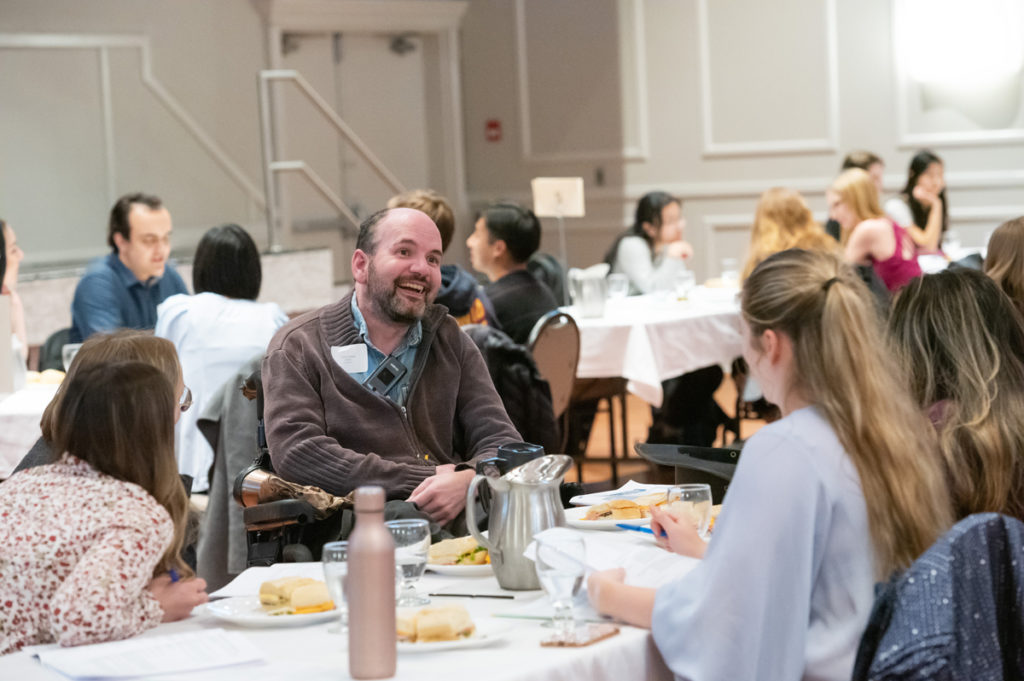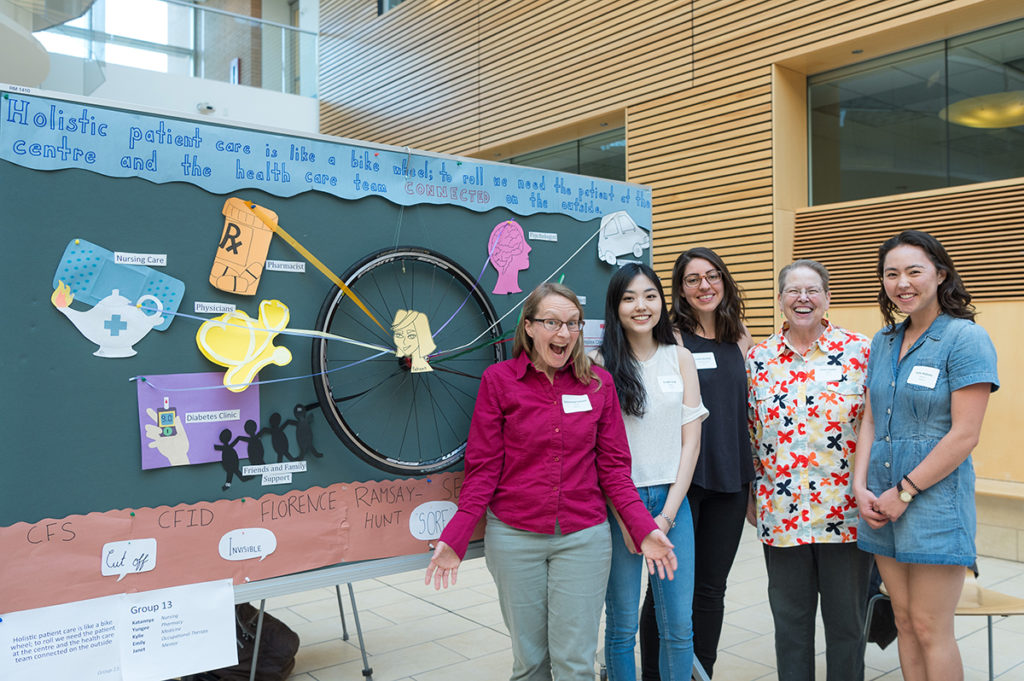In 2020, the Health Mentors Program at UBC celebrates its tenth year in operation. The program brings together students from ten different health disciplines at UBC to learn from and with a mentor who has a chronic condition or disability or is a caregiver of someone who has one.
The idea for the initiative emerged when two faculty members in the Faculty of Medicine recognized a gap in healthcare curricula around chronic illness.
“Students primarily learn in acute care settings in hospitals, and we know that chronic illness is on the increase as the population ages,” explains Dr. Angela Towle, Associate Professor in the Department of Medicine, who, along with Dr. William Godolphin, Professor Emeritus in the Department of Pathology and Laboratory Medicine, used funding from the Teaching and Learning Enhancement Fund (TLEF) to launch the program.
Recognizing that many health professionals are involved in the care of a person living with a chronic condition, Dr. Towle and Dr. Godolphin involved students and faculty from across the health disciplines at UBC in designing the program. They also included the community from the outset, as they wanted students to have the opportunity to learn directly from patients, given the expertise that they have in managing their own conditions.

To date, 1,500 students have participated in the program, which brings together groups of four students and a mentor to meet over the fall and winter terms for self-directed study that focuses on conditions as varied as Alzheimer’s disease, arthritis, cerebral palsy, epilepsy, HIV, mental health, multiple sclerosis, spinal cord injury and stroke.
For the students, learning from their mentors helps bring to life the daily realities of managing these conditions. Someone living with multiple sclerosis, for example, might have physicians, occupational therapists, speech therapists and pharmacists involved in their care, with little or no collaboration between these providers.
Seeing firsthand that the impact of a siloed healthcare system on people’s lives, leaves a much more lasting impression on students than simply reading case studies, says Dr. Towle.
“So many of our mentors are not receiving the best healthcare, so the students can understand the gap between what they’re taught about the healthcare system and the way it actually functions for many people.”
Dr. Angela Towle, Associate Professor in the Department of Medicine
By bringing together students from dentistry, clinical psychology, genetic counselling, kinesiology, medicine, nursing and occupational therapy, among several others, the program offers them insights and problem-solving methods into health conditions they could not otherwise learn in their individual program structures.
“The Health Mentors Program has helped me realize that every profession has a unique and important perspective,” says Devon Cochrane, an occupational therapy student. “Every single one of those perspectives needs to be understood and included to create a holistic view of healthcare.”
This ability to collaborate between professions is increasingly in demand for health practitioners, and the program has been replicated at universities in North America and abroad.
The Health Mentors Program is an example of UBC’s efforts to support opportunities for students from different perspectives and disciplines to work together on complex or emergent problems (Strategy 14: Interdisciplinary Education). It is offered at the Vancouver and Okanagan campuses, as well as to students in the distributed medical program in Victoria and Prince George, and is currently funded by the Office of UBC Health.

In April 2020, due to COVID-19, the program’s annual symposium was held virtually, with participants sharing their learning with other UBC students, faculty and the community through tweets and a variety of digital presentations.
“Many people with chronic illness possess incredible resilience – a secret weapon in their lifelong healthcare journey. As healthcare professionals, we can reinforce and support our patients’ resilience to enhance their care,” tweeted a group of students in the program with their mentor.
With the number of people living with chronic conditions on the rise, this innovative model fosters a valuable perspective of integrated, patient-centred care that tomorrow’s health care providers can bring to their practices. For health mentor Kent Loftsgard, this makes his volunteer contribution to the program worthwhile.
“The number one highlight is the opportunity to get to contribute to the shaping of the hearts and minds and sensibilities of the next generation of health care workers.”
Kent Loftsgard, health mentor